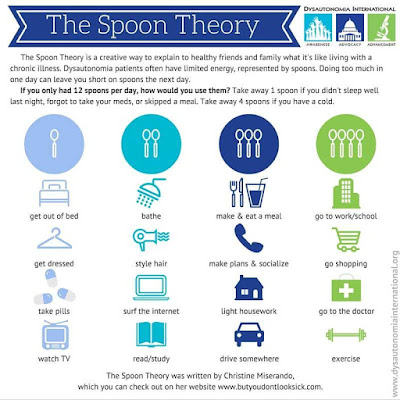
I have had a very frustrating week, followed by a frustrating weekend. I suppose part of this is the nature of the holiday season -- too many things squeezed into too little a space of time. Part of this is connected to my day-job and what feels like a never-ending and overwhelming work load. And part of this is just vicarious frustration as so many of my clients are also feeling their ire rise.
In simple terms, frustration is the feeling of being upset or annoyed, especially because of inability to change or achieve something. Frustration tolerance is the idea that we have a capacity for how much frustration we can tolerate without having some sort of emotional breakdown.
What I try to get my clients to understand is that everyone has limited daily energy. That energy is being used up by all sorts of things. I have people picture a battery -- throughout the day, every task they do takes energy from that battery. The lower their battery level, the greater the percentage of what they have left each new task takes. In short, the more you have on your plate, the less energy you have for each thing, and that includes emotional energy. The end result is that your frustration tolerance goes down, and those little things that you might be able to brush off with a full battery -- like traffic, rude people, or even dropping your keys -- suddenly feel like really big deals because you have so little energy left to deal with them.
Other people use the spoon theory to describe what life is like with chronic illness (physical or mental) or chronic pain -- the idea that your battery (or in this case, the number of spoons you have) is already lower than someone else not dealing with that condition:
The point of both analogies -- batteries or spoons -- is to recognize when your levels are low. Because when your levels are low, your irritability will be higher, your problem solving skills will be impaired, and your emotions in general will be closer to the surface.
So as we move forward into the holiday season, and the multitude of things that comes with it, please be sure to keep track of your battery levels. You will need to recharge them -- with rest, with time for yourself, with delegating tasks to other people, with turning down obligations. And more importantly, you need to practice self kindness when you start to lost it -- snap at your loved ones, get emotional over small things, or feel too drained to do as good a job as you want to. It just means your battery -- and your frustration tolerance level -- is low.
***
J.M. Phillippe is the author of Perfect Likeness and the short story The Sight. She has lived in the deserts of California, the suburbs of Seattle, and the mad rush of New York City. She works as a family therapist in Brooklyn, New York and spends her free-time decorating her tiny apartment to her cat Oscar Wilde’s liking, drinking cider at her favorite British-style pub, and training to be the next Karate Kid, one wax-on at a time.



Another great post, JM! I needed this reminder to be gentle with myself as I deal with the deaths of friends, last-minute deadlines just imposed on me, frustration with mover delays, and an imminent drive to another state tonight for a public appearance and reading. At a time when my spoons are low.
ReplyDeleteRight on point.....I gave up the ghost early last night finally admitting to myself that I was tired and that I'd wasted the day trying to do things. Result: rested and much more done in half a day today than all of yesterday. Thanks for this great reminder.
ReplyDeleteGood tips for pacing ourselves during the holidays and all year. Thanks!
ReplyDeleteWow! Bless you for your reminder and common sense. My diabetes plus depression trying to finish a manuscript while adjusting to son hime after 6 yrs! Ijole! No wonder my energy is low high low high! Loved the post.
ReplyDelete